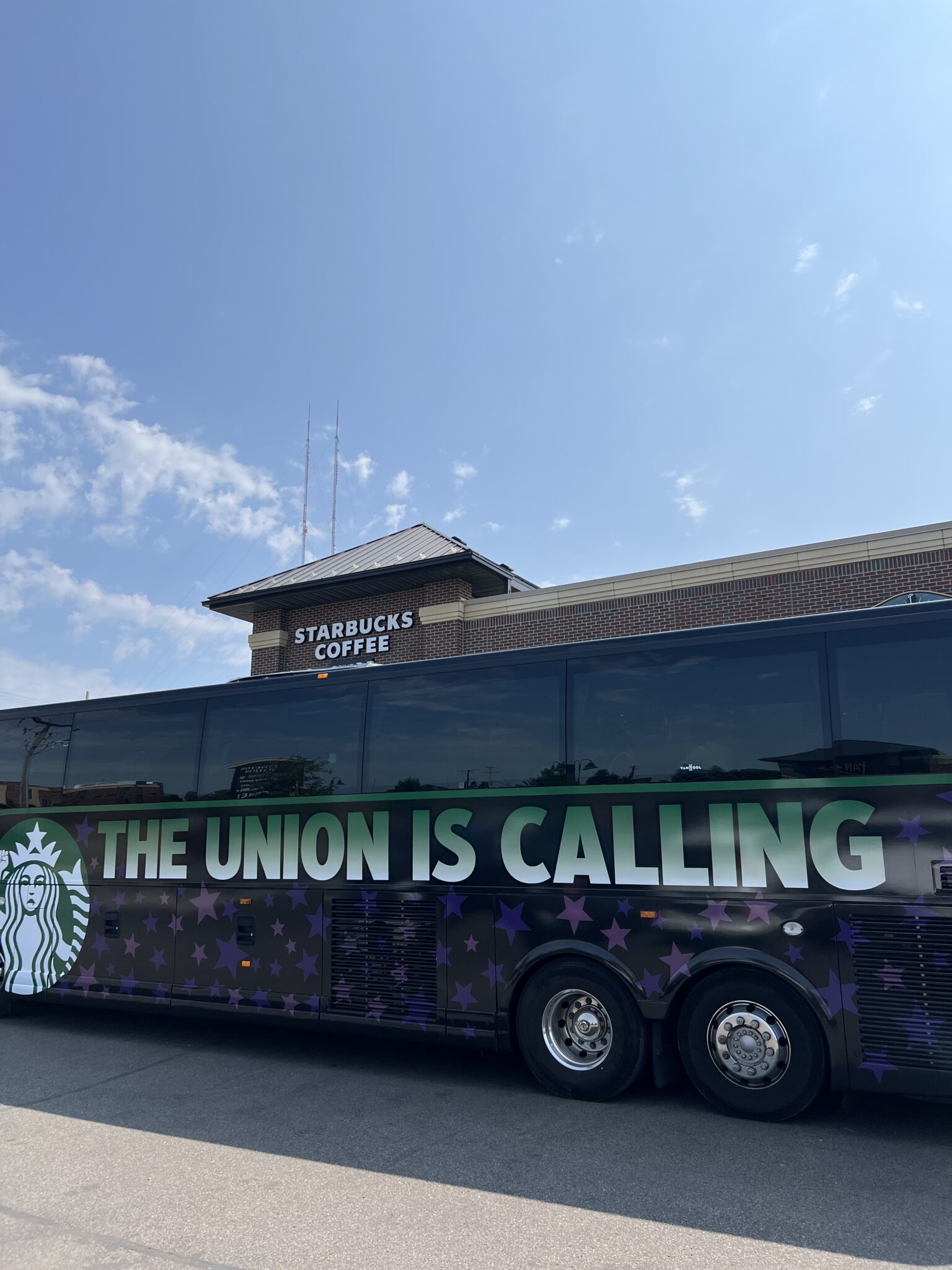
Morgan Sperry is a student at Harvard Law School and also serves as OnLabor's Social Media Director.
In today’s News and Commentary, hot labor summer is in full force as Starbucks workers, actors, screenwriters, and UPS drivers remain locked in labor disputes.
Starbucks Workers United is on a national bus tour to bring attention to Starbucks’ 2,000+ federal labor law violations and refusal to negotiate with unionized stores. The workers seek just cause employment protections, improved health and safety standards (including zero tolerance of sexual harassment), increased wages, predictable and regular scheduling, high quality healthcare, and expanded access to medical, parental, and personal leave (plus the right to take leave for union work).
Starbucks workers have also been sounding the alarm regarding some stores’ restriction of Pride month decorations amidst renewed attacks on the LGBTQ+ community. Currently, more than 300 Starbucks stores are unionized across 38 states and DC. Just this week, workers at the Chicago Roastery—the largest Starbucks store in the world—filed for an NLRB union election.
The entertainment industry continues to reel after movie and TV actors joined striking screenwriters on the picket lines Friday. The historic simultaneous SAG-AFTRA and WGA strikes have helped launch today’s labor movement into the zeitgeist as Hollywood’s biggest stars use their platforms to discuss exploitation, CEO overpay, the gig economy, the future of AI, and what work post-COVID should look like.
As Swap reported, 340,000 UPS workers are prepared to strike—and, on Sunday, Teamsters President Sean M. O’Brien asked the White House not to intervene. The union continues to push for air conditioning in trucks, ending the existing two-tier wage system, and wage increases for part-time workers. The strike would be one of the largest single-employer strikes in US history.






Daily News & Commentary
Start your day with our roundup of the latest labor developments. See all
February 20
An analysis of the Board's decisions since regaining a quorum; 5th Circuit dissent criticizes Wright Line, Thryv.
February 19
Union membership increases slightly; Washington farmworker bill fails to make it out of committee; and unions in Argentina are on strike protesting President Milei’s labor reform bill.
February 18
A ruling against forced labor in CO prisons; business coalition lacks standing to challenge captive audience ban; labor unions to participate in rent strike in MN
February 17
San Francisco teachers’ strike ends; EEOC releases new guidance on telework; NFL must litigate discrimination and retaliation claims.
February 16
BLS releases jobs data; ILO hosts conference on child labor.
February 15
The Office of Personnel Management directs federal agencies to terminate their collective bargaining agreements, and Indian farmworkers engage in a one-day strike to protest a trade deal with the United States.